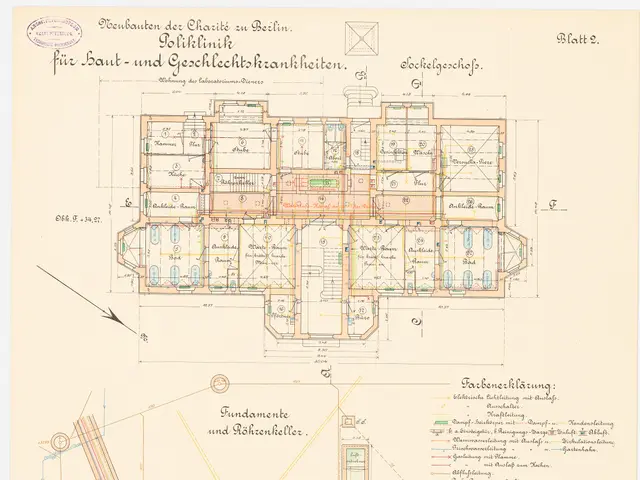US Downed Drone: Key Insights from Russia's Capture of an American Unmanned Aerial Craft
In an incident that has raised eyebrows in the international community, a United States MQ-9 Reaper drone was recently downed by Russian Su-27 fighter aircraft over the Black Sea. This incident serves as a stark reminder of the increasing risks and geopolitical tensions associated with unmanned aerial vehicle (UAV) operations in contested international airspace.
The incident demonstrates how manned fighters can effectively challenge remotely piloted drones, signaling challenges for the use of unmanned platforms in large-scale combat where adversaries have capable air defenses and interceptors. The MQ-9 Reaper, despite its advanced surveillance and strike capabilities, was neutralized by traditional fighter jets through interception or tactics such as fuel dumping, as reportedly used by the Russian Su-27 to force the drone to crash.
This event underscores the vulnerability of drones like the MQ-9 Reaper and calls for a real debate about their survivability and the role of these expensive platforms in a future conflict against a near-peer adversary. There is growing emphasis on upgrading UAVs with advanced defensive technologies such as directed-energy weapons (e.g., low-powered lasers) and electronic warfare capabilities to mitigate threats from enemy fighters and air defenses.
Moreover, UAVs like the MQ-9 may require better coordination with manned fighter aircraft and electronic support measures to operate safely in contested zones. The incident also suggests that shootdowns in international airspace over regions like the Black Sea represent potential flashpoints that could escalate international tensions, highlighting the delicate balance of drone deployment as an intelligence and combat tool.
The downing of the Reaper also reflects the evolving air combat environment where traditional air interceptors remain relevant against emerging unmanned systems. It calls for doctrinal and technological adaptations by countries relying on UAVs in future conflicts to ensure they can operate effectively amid contested airspace and advanced enemy tactics.
Interestingly, the Russian air force, once boasting one of the largest fleets of military aircraft in the world, has only played a marginal role in the ground war. The direct attack on the Reaper challenges longstanding norms that superpowers do not engage in military conflict directly.
Liam Collins, PhD, a retired Special Forces colonel with deployments to various regions, believes that the lessons from this incident should not be overlooked, particularly regarding unmanned platforms, strategic decision-making, and large-scale combat operations. Liam Collins served as a defense advisor to Ukraine from 2016 to 2018 and is coauthor of Understanding Urban Warfare.
It is important to note that Liam Collins' views do not reflect the official position of the United States Military Academy, Department of the Army, or Department of Defense.
In conclusion, the incident with the MQ-9 and Su-27 over the Black Sea reveals both the operational risks unmanned platforms face in modern warfare and the resulting impetus to improve their tactical role, survivability, and integration within broader air combat strategies. As the use of UAVs continues to grow, so too will the need for countries to adapt their doctrines and technologies to ensure their UAVs can operate effectively in contested airspace.
- The downing of the MQ-9 Reaper highlights the need for upgrading drones with advanced defensive technologies like directed-energy weapons and electronic warfare capabilities, to counter threats from enemy fighters and air defenses in urban warfare.
- The incident involving the MQ-9 Reaper and the Russian Su-27 serves as a reminder that drones like the MQ-9 may require better coordination with manned fighter aircraft and electronic support measures to operate safely in contested zones, especially in a future conflict against a near-peer adversary.
- In light of the MQ-9 Reaper shootdown, there is a growing emphasis in the aerospace industry and finance on the development and deployment of drones outfitted with cutting-edge intelligence and defense systems to mitigate threats from adversaries in large-scale combat warfare.
- Liam Collins, former Special Forces colonel and co-author of Understanding Urban Warfare, warns that the lessons from the MQ-9 Reaper incident should not be ignored, particularly concerning the tactical role, survivability, and integration of unmanned platforms in large-scale combat operations.
- The delicate balance of drone deployment as an intelligence and combat tool is underscored by the potential for shootdowns in international airspace, such as the Black Sea, to escalate international tensions and represent potential flashpoints in urban warfare.








